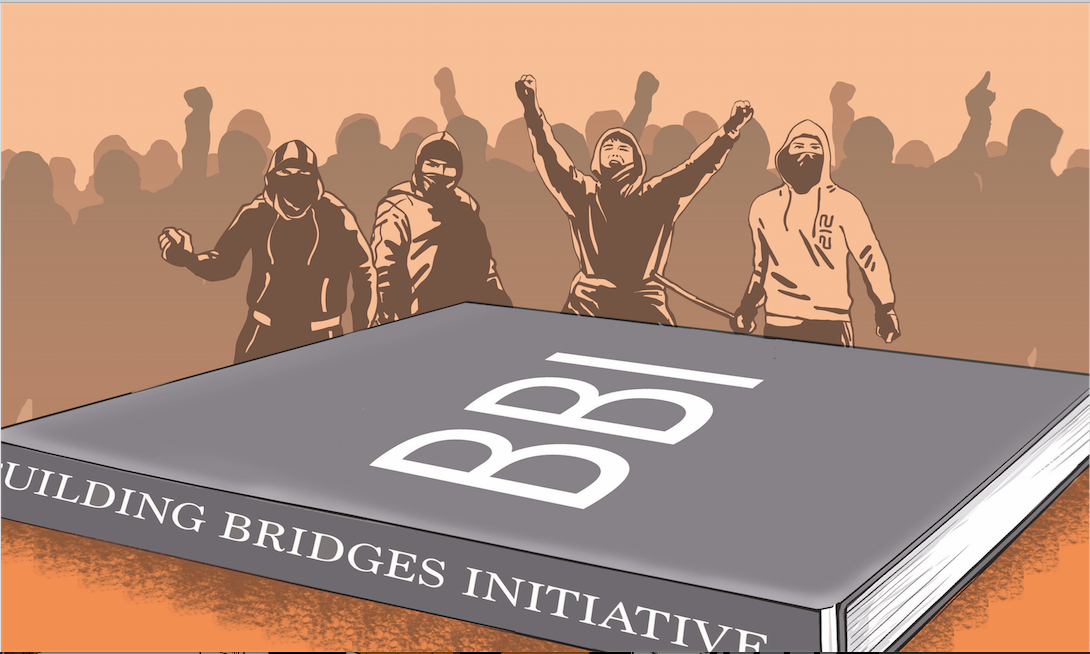
In the shadowy corridors of power, where manipulation thrives and truth is often a casualty, the term 'useful idiot' emerges as a stark warning. Coined in the early 20th century amid Soviet communism—though its exact attribution to Vladimir Lenin remains debated—the phrase describes naive individuals who unwittingly advance agendas that undermine their own interests.
These are not villains, but pawns: well-meaning sympathisers exploited by cunning actors to propagate ideologies or policies without grasping the full consequences. Fast-forward to modern Kenya, hurtling toward the 2027 election, and the 'useful idiot' is no historical relic. It's a living phenomenon, embedded in our political fabric, threatening to derail genuine progress if citizens fail to recognise and resist it.
Consider the Building Bridges Initiative, that grand illusion of unity peddled by political elites in 2018. Marketed as a panacea for ethnic divisions and governance woes, it rallied blind supporters—ordinary Kenyans, local leaders and even idealistic youth—through emotive rallies and promises of inclusivity. Yet, beneath the veneer lay a calculated power grab, entrenching elite interests while sidelining real reforms.
When courts struck it down for procedural flaws, those fervent backers were left holding the bag, their enthusiasm exploited to legitimise a flawed pact. Were they idiots? Perhaps not intentionally, but useful they certainly were, amplifying a narrative that served the few at the expense of the many.
This pattern repeats across Kenya's multi-party landscape, where ethnic-based alliances masquerade as democratic pluralism. Voters who defend party lines—be it ODM, UDA or Jubilee—amid glaring corruption scandals become unwitting tools. They rally behind charismatic leaders, ignoring how these coalitions prioritise personal loyalties over policy delivery.
The result? A perpetuation of tribalism and inefficiency, where elites divide and conquer, securing votes without accountability. It's a classic exploitation: the masses cheer for symbols of identity, while systemic issues like poverty and unemployment fester unchecked. Even broader coalitions, like the recent 'broad-based government' under President William Ruto, exemplify this trap.
After the 2024 Gen Z protests, opposition figures were co-opted into the cabinet, and this was hailed as a step toward stability. Passive endorsers applauded this 'inclusivity', failing to demand transparency or reforms.
In reality, such moves often dilute opposition voices, masking corruption under a facade of unity. Supporters, lulled by short-term calm, enable a system where elite pacts trump public welfare, leaving youth demands—for jobs, affordable living—unaddressed.
Institutions aren't immune. In the Senate and National Assembly, lawmakers often morph into useful idiots through party-line obedience, rubber-stamping executive agendas laden with self-interest. Controversial bills on taxation or term limits pass amid public outcry, as legislators trade oversight for perks or ethnic solidarity.
County assemblies mirror this, with MCAs defending governors' embezzlement-riddled budgets, squandering devolved funds meant for local upliftment. These representatives, elected to serve, become enablers of graft, their blind loyalty harming the very constituents they represent.
The streets offer raw examples too. Hired goons disrupting Gen Z protests—often desperate youth paid peanuts to incite violence—fit the archetype perfectly. Manipulated by politicians to discredit peaceful movements, they turn public sympathy against reforms that could benefit them, like economic equity. Their actions, born of coercion and poverty, serve to preserve the status quo, making them tragic pawns in a larger game.
Religious setups and trade unions compound the issue. Churches that host politicians for 'harambees' without questioning financial ties or governance links exploit congregants' faith, legitimising corrupt regimes. Unions, co-opted through deals, mute worker advocacy, allowing exploitative policies to thrive.
And then there are passive citizens: those who abstain from civic engagement, their apathy enabling entrenched power. Low voter turnout ahead of 2027 is not neutrality—it's complicity, handing elites free rein.
In my view, the 'useful idiot' thrives in Kenya because of our vulnerabilities: ethnic divisions, economic desperation and a culture of unquestioned loyalty. Politicians weaponise these, turning well-intentioned people into instruments of stagnation.
But here's the hope—as 2027 looms, awareness is our shield. Gen Z's recent awakening shows what's possible: critical scrutiny, digital mobilisation and demands for accountability can dismantle these manipulations.
To guard against the pitfalls, Kenyans must cultivate discernment. Question alliances, demand transparency in institutions and reject hired disruptions. Religious leaders should preach justice over patronage; unions, solidarity over sellouts.
Passive citizens? Rise—vote, protest, engage.
The useful idiot is not doomed to idiocy; with eyes wide open, we can become
agents of change, not unwitting tools. In a nation ripe for transformation,
let's ensure the only idiots are those who underestimate our collective wisdom.
Social consciousness theorist, corporate trainer and speaker, agronomist consultant for golf courses and sportsfields, and author of 'The Gigantomachy of Samaismela' and 'The Trouble with Kenya: McKenzian Blueprint'
















